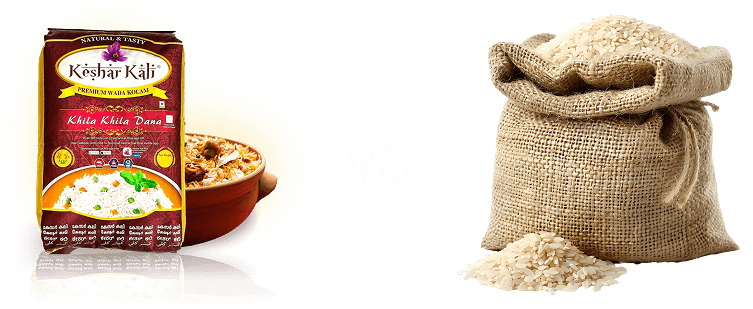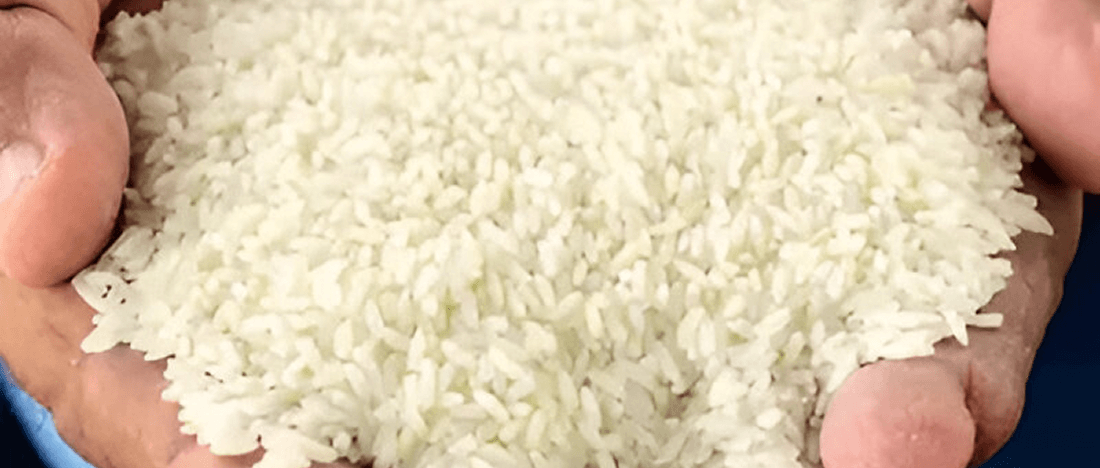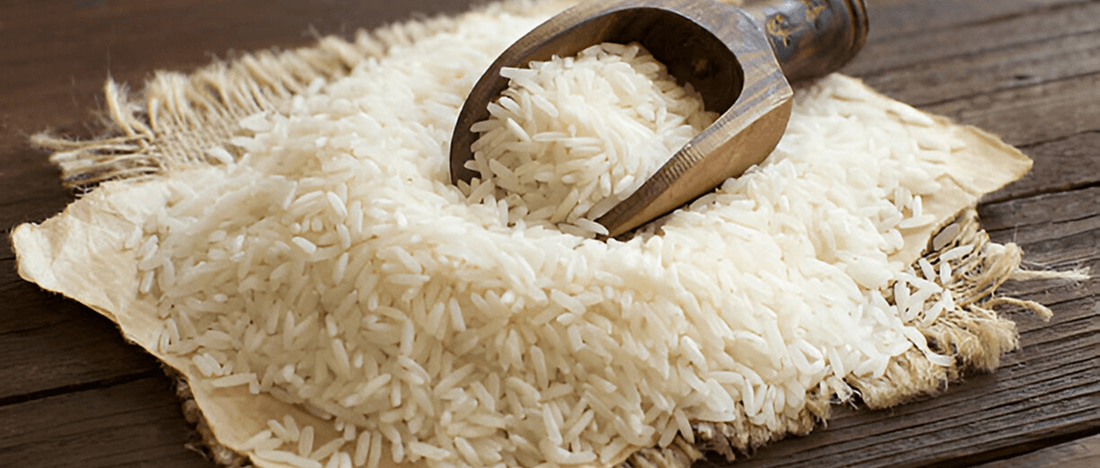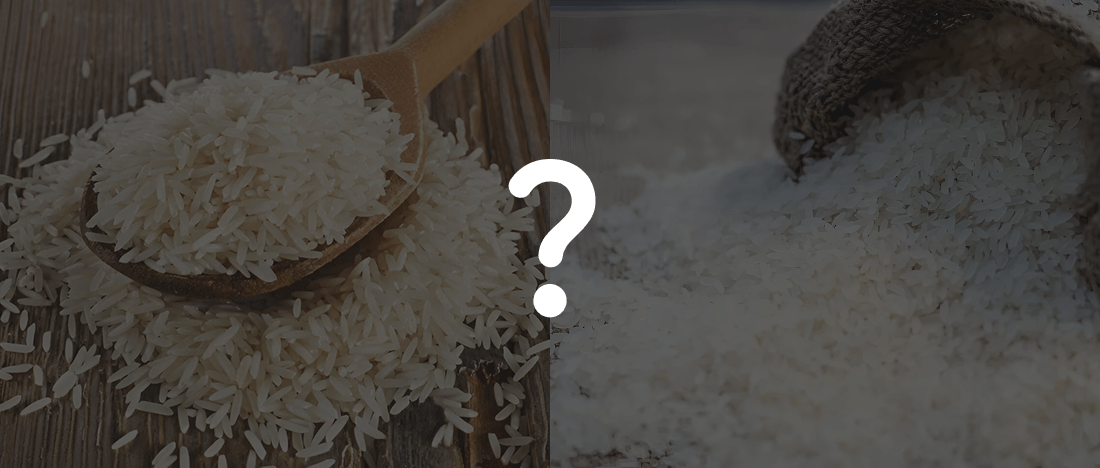Rice is a staple food in every Indian household as well as a consistent source of comfort and nourishment. It is wonderful how something as simple as rice can highly impact your daily life. Rice is more than a dish; it’s a staple food that brings everybody together at the dining table. Basmati and Wada Kolam rice are among the famous types of rice due to their culinary applications, versatility, unique characteristics, and widespread use. Selecting one rice variety between the two can be overwhelming and impact your meal. Therefore, you often think about: Which type of rice should you buy- Wada Kolam or Basmati Rice? Which is better between the two? The blog is here to answer all your questions. Continue reading to know more and make an informed choice!
The fluffy and aromatic Basmati rice differs from Wada Kolam Rice. Discussed below are the differences between these two types of rice:
Wada Kolam Rice has a sweet, floral fragrance, resembling the smell of Kesar. When you cook this rice variety, it becomes soft and spongy, making it best for daily meals. You can cook special or weekend meals like rice porridge with Wada Kolam rice. In contrast, Basmati rice has a robust and unique aroma. The wonderful taste and aroma of Basmati rice fill the kitchen and elevate your dining experience. Wada Koal rice has a gentle taste, making it perfect for daily consumption, while Basmati rice has a taste of slight sweetness and earthiness.
As far as the versatility and cooking applications are concerned, Wada Kolam rice is versatile in nature. You can cook any dish with this type of rice, from rice porridge on special occasions to regular rice meals. On the other hand, Basmati rice is versatile for special dishes such as pilafs, puliyogare, fried rice, rajma chawal, and so on.
Both Wada Kolam and Basmati Rice have varying grain sizes and shapes. The former has small to medium-sized grains. Slender. On the contrary, the grain size of Basmati rice is long, slender, and lightweight. Although the grains of Wada Kolam rice are slender, they are shorter than the grains of its Basmati counterpart.
When comparing the price and availability of Wada Kolam and Basmati rice, the latter is slightly bit costly than the former. This is due to the unique cultivation and harvesting process of Basmati rice, the long variety, and the ageing process that enhances its aroma and taste. In contrast, Wada Kolam rice is reasonably priced. This is because of its lower price point and its suitability in everyday use for regular dishes such as lentils, curries, and plain rice. Both these types of rice are available all over India.
Wada Kolam rice expands when cooked, almost doubling in its original size. The enhanced size is because of the starch content that absorbs high amounts of water, leading to swelling and an increase in size. Likewise, Basmati rice also elongates, but the reason is different. It is packed with high amylose content that contributes to the expansion and separation during cooking.
Although both Wada Kolam and Basmati rice are healthy and packed with essential vitamins and minerals, there’s a slight difference in the glycemic index. Wada Kolam Rice has a slightly higher glycemic index than Basmati rice. Despite a slightly higher GI, diabetic patients and those who are looking to manage their blood sugar levels can enjoy Wada Kolam rice because the GI is less than regular white rice.
So, which rice variety to choose between Basmati and Wasa Kolam Rice? Well, the choice of rice depends on your taste, dietary goals, and culinary applications. It is advisable to keep both these types of rice at home. Wada Kolam is perfect for daily consumption, while Basmati rice is best for cooking meals on special occasions. If you are bored with your regular meal, you can twist it by cooking your daily food with basmati rice. You can also cook your weekday meals with Wada Kolam rice and weekend meals with Basmati Rice. In this way, you can enjoy the health benefits of both rice varieties.




